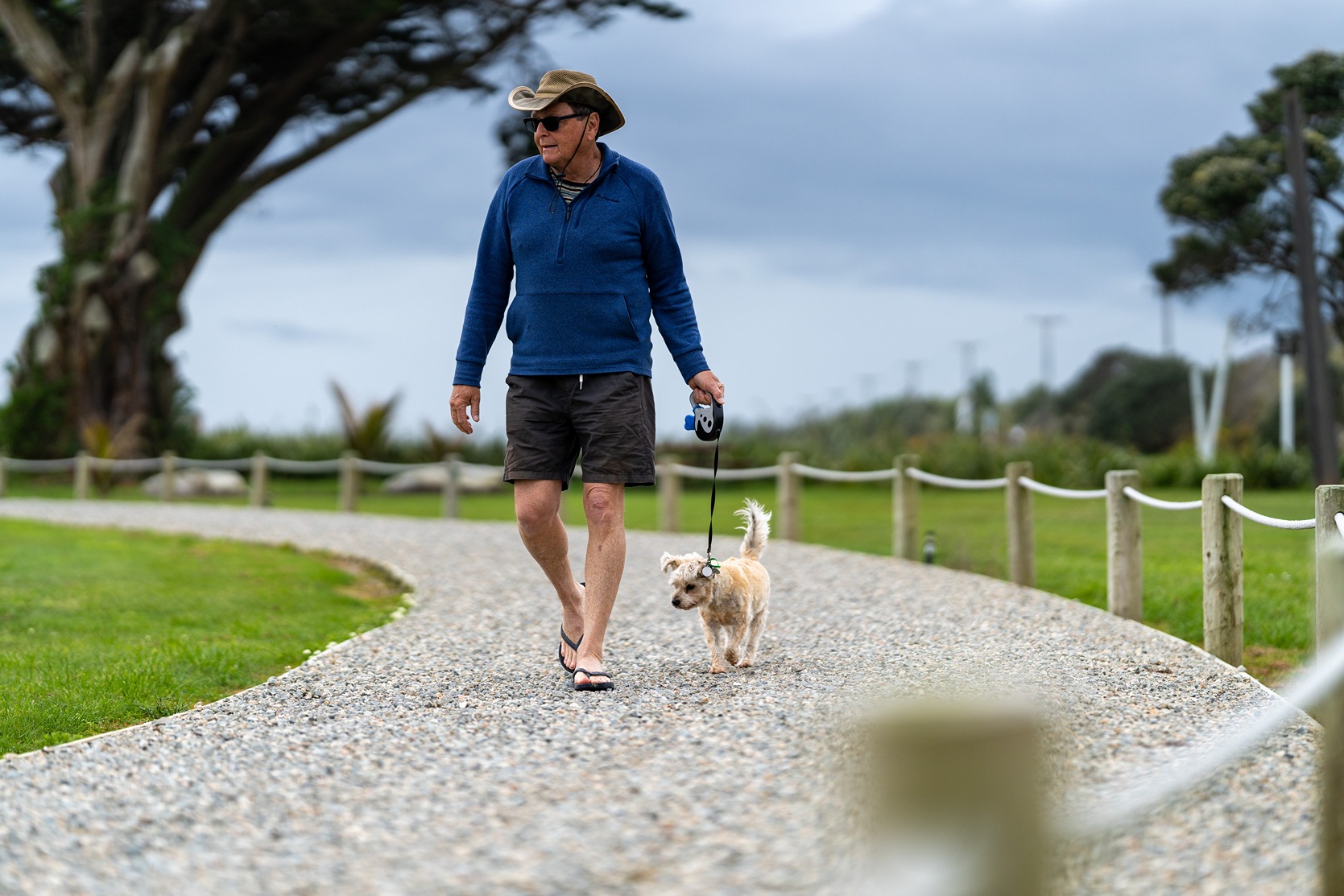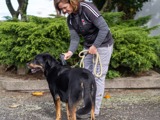Owners must ensure their dog receives proper care and attention. This means providing adequate food, water, shelter and exercise. Be sure to keep your dog's vaccinations and worm treatments up to date. Your local vet will be able to help with a schedule.
Dogs may be exercised free of restraining devices under the owner’s constant observation and voice control in the following areas:
- River edges, beach frontage, including dune areas, (excluding conservation areas).
- The Westport Domain, Brougham Street Domain, the southern end of Carters Beach Domain.
- In Reefton, the Strand, adjacent to the racecourse on the Crampton Road reserve and the old cemetery on Buller Road Leash control areas.
Dogs must be on a leash in all urban areas, parks (not identified as exercise areas or prohibited areas) or any area where the dog (if not on a leash) may injure, intimidate or cause distress to any other people, domestic animals, stock, poultry or protected wildlife.
There are also specific areas such as children’s playgrounds where all dogs (with the exception of those carrying out their function as a working dog as defined by the legislation) are prohibited.



